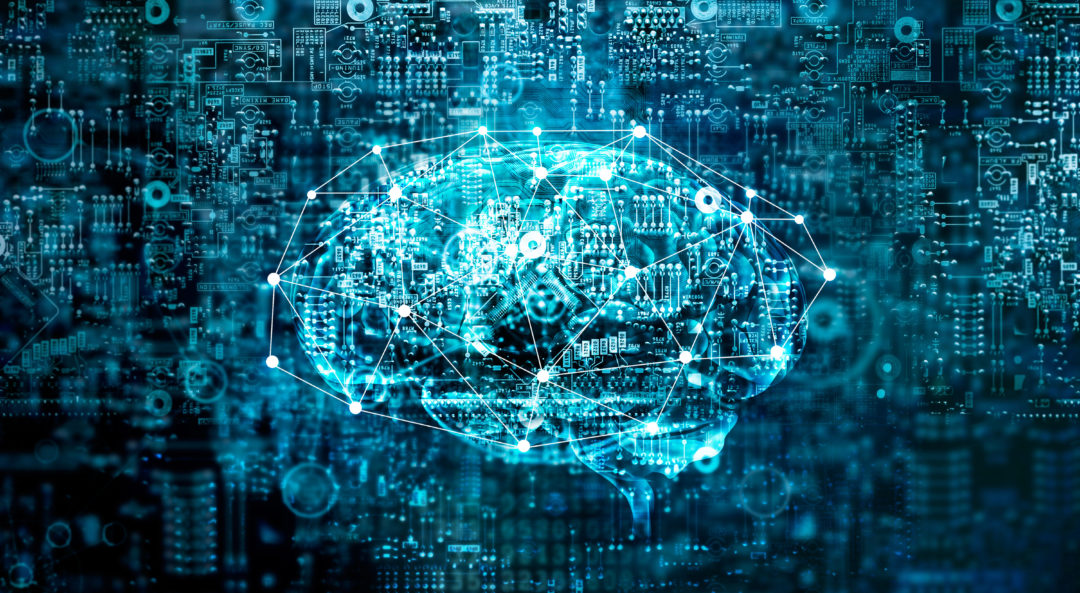Of all the industries set to be impacted by artificial intelligence and machine learning, the healthcare sector stands to gain the most.
Often hindered by legacy infrastructure and disparate data sets from hundreds, or thousands of different sources, healthcare needs AI. Currently, the healthcare industry stores vasts amounts of data without the structured solution needed to improve the system for patients and employees alike.
“AI is set to integrate the data collected and provide ever improving treatments for patients from the process of drug discovery to providing personalised therapeutics, while considering the individual’s diagnostic data,” explains Ian Roberts, CTO at Healx.

“This is particularly exciting due to the fact that the costs and time associated in all parts of the process can be cut down dramatically, due to the relatively cheap nature of modern computation (when compared to current model of healthcare systems). With the current model, healthcare systems around the world are not sustainable and AI has the potential to change that to democratise medicine once again.”
What is the potential of artificial intelligence in healthcare?
Despite apparent hurdles to overcome, AI systems will appear at an increasing rate throughout healthcare processes — whether it is in diagnosis diabetic eye disease at the Moorlands Eye Clinic, or assisting surgery with Robots like Da Vinci Surgical System.
AI will be fully integrated into the UK’s healthcare system in ten years from today, according to Roberts. Once this happens, preventative medicine will become more prevalent in protective treatments before the onset of life-threatening conditions. This will also cut costs in the long term.
New uses and cures
Machine learning and AI be used to find new uses for existing drugs, with the aim of helping cure rare diseases. And, as with any AI system, it’s all about the data.
“The data that encodes the connection between biological networks and relevant drug classes is difficult to find with the human eye, spread over disparate knowledge sources spanning geographic and language barriers,” says Roberts.
The next necessary step in healthcare: Remote mobile solutions
“There are several layers of data which no one can integrate without AI. We have academic papers covering basic research, diagnostic omics data, immunology markers, compounds structures, as well as patients’ personal reports about their condition and the treatments they tried,” he continues.
“Using machine learning algorithms, the technology can be used to read, analyse and correlate and integrate data at a much faster rate, with ever improving accuracy. Patterns and relationships are identified to discover new targets, drug entities or repurposing of drugs already on the market in order to treat rare diseases in unexpected ways.”
Overcoming unstructured data
Most of the current data is unstructured, and needs to be optimised for AI mining. This is the huge challenge that many institutions, and companies like Healx, are working on to find solutions to — in order to collect and curate data in a structured manner.
“In the case of rare diseases,” says Roberts, “validating treatment predictions is a massive challenge. Models for most common diseases are well established and predictions can be validated relatively easily. Yet, in rare diseases there are far less disease models to validate predictions and this massively inhibits drug development for these debilitating conditions.”
A guide to artificial intelligence in enterprise: Is it right for your business?
“Yes, these challenges might slow us down or make our work harder but knowing that rare disease patients don’t have ANY treatment available to ease their suffering makes it easy for us to keep on going despite the difficulties. We firmly believe in our mission that all rare disease patients deserve a treatment.”
It’s clear that the challenges facing an AI company, looking to make an impact on the healthcare sector, are multi-faceted. This includes access to data, all the way through to governance and regulatory compliance in clinical trials.
“Surprisingly, the AI aspect works well, and is less of challenge,” claims Roberts. “With that in mind, you could say a logistical challenge is in the interface between AI, a human rare disease and pharmacology experts.”










